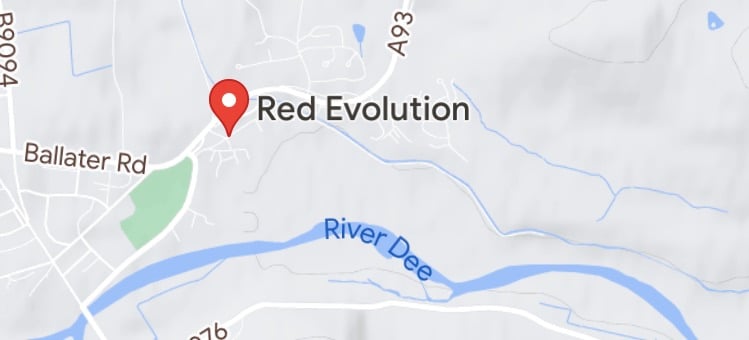This post was first written in 2015 and updated in 2022.
When we talk to potential clients about Inbound Marketing, they usually start to share their experiences to date, in particular, the things their current SEO company are telling them. Now we know people are confused about SEO from the number of people who visit our SEO explained page, but some of the things we hear are frightening!

As you've probably guessed from the title of this blog post one of their pearls of wisdom was, and I'm quoting our potential client, "They said they'd 'white wrap' keywords so people don't see them but they'd be visible to search engines. Is this standard practice?"
Where to start!
Dodgy SEO Practices To Avoid
First off Google's guidelines make it crystal clear that doing this is a no no. Most SEO companies know this and have known this since, well since forever. It's quite incredible these guys thought of doing it and even more so they shouted about it; it's more the kind of thing a deceptive company would do out of desperation.
Here is our list of top dodgy practices that you need to avoid at all costs (or you can watch us discuss them if you prefer).
1. Keyword stuffing
You've seen it, a page of information that doesn't read quite right and is very repetitive because someone has decided to use a keyword that doesn't quite fit in a sentence, and work on the basis that the more often you use it the more likely it is to rank near the top of Google. You know, like this delight:

Google's algorithms are becoming more sophisticated by the day, and they can normally spot this sort of spammy content and will probably ignore it, as it does not provide a good user experience. Google doesn't want to send its users to a rubbish page, as its job is to help them find the best answers to their questions.
2. Duplicate content
Either using the same words on several different web pages or "borrowing" words from another website are seen as duplicate content and all versions other than the original are ignored by search engines. For instance, using the example above, there might be a second page on the website all about Fire Risk Assessments in England which is identical except for the word England in place of Scotland. In some instances, such as having different versions of your website for different countries, there may be pages that are pretty much the same across all the versions, but you can tell the search engines which one is the original by using the "canonical" tag.
3. Hidden text
As mentioned above, these practices are less common nowadays, but include shortcuts like adding keywords in white text on a white background. Just don't!
4. Lists of towns or postcodes
Similar to number 3, but less subtle, you see huge lists of all the towns and villages that a company services at the bottom of a page. It seems highly unlikely that Google will pay any attention to these.

5. Buying links from link farms
One of the signals Google uses to decide how to rank a web page is links from other sites. BUT, not just any old links from any old sites. Please don't go buying irrelevant links in bulk - at best they will be ignored and at worst they could be classified as toxic by Google and destroy your visibility.
6.Thin content
Short pages with just a couple of paragraphs on them, and waffly, unhelpful copy are also red flags to Google, as they imply that your page is not worth linking to.
If you want to listen to us talking about this topic, here's the related podcast
These underhand practices still happen, and no doubt it will always be the case as more companies see the $$$ signs and the lure of a quick buck. The truth is that SEO is hard. Not technically hard, not "this stuff is so geeky" hard, although we know people are still perplexed, but hard because, like most things in life, when the rewards are high getting there is hard or "difficult difficult lemon difficult".
In short if you want to secure search engine traffic you've got two options and both of them cost money, sometimes a lot of money.
Option 1 - Paid Search
Ingredients include money, hard work and a sprinkling of creativity and know how.
Option 2 - Organic Search
Ingredients include money, hard work, lots of creativity and know-how and plenty of luck.
Option 1 pretty much guarantees you exposure and is very powerful. The downside is you have to pay and keep paying, but it works.
Option 2 is more tricky. With option 2 you could spend a lot of money and make very little progress, sometimes none but sometimes a lot, and it's this uncertainty that leads to the confusion and dishonesty in the SEO arena.
Top SEO Tactics To Try
Here's our list of top tactics to include in your marketing plan.
1. Writing for your Audience
If you write copy for humans rather than trying to second guess a machine, you can't go far wrong. Rather than repeating the same keyword, write naturally, use synonyms and tell a story. Google's AI is looking to see if your keywords are in context and that the entire page is relevant to the searcher For example, is it using related words and phrases that you would expect to see if someone was writing about a specific topic.
2. Understanding your Audience
If you know exactly who you are creating a web page for, and what its purpose is, you are much more likely to write content that is relevant, and therefore meets the intent of the searcher.
3. Use Google Maps
If you have a local presence make sure you have signed up for Google Maps (it used to be Google my Business, and before that it was Google +) so that you show up for local searches.

4. Create Local Case Studies
Write case studies that specify the location where the service took place - that is much more effective than a list of towns in the footer of your website!
5. Request Links From Relevant, Authoritative Sources
Use your contacts or do your research and find the blogs or publications that matter to your potential customers. Ask them to link to a really useful and relevant piece of content that will genuinely help their readers.
6. Add Internal Links
Links between pages on your own website can help with search rankings. For example, if we add a link here called SEO Glasgow, that will help our Glasgow page to perform better in search.
7. Use Video
Google loves video - either on a web page or on YouTube, which is the worlds second largest search engine. Providing a video version of your content gives you another chance of getting noticed.
8. Update High Performing Content
Keep an eye on which blog posts are bringing traffic to your website and give them a refresh. For example, this blog post is very popular but contained out-of-date references, so we've given it a wee polish and brought it bang up to date.

So Why Bother Doing SEO Properly?
Simply because organic search engine success really is the gift that keeps on giving. Secure good search rankings and your business will benefit, sometimes hugely, often for years.
For example, we've got content on our website, created years ago that still brings visitors to our website most days. How many adverts do that? How many other promotional activities deliver like that? This is why we argue that investing in content marketing makes sense. It's hard but it works.
So long as people refuse to take these truths onboard, companies who pretend to know about SEO will flourish, white text on a white background and all. This is because humans are naturally programmed to look for short cuts and they want to believe there's an easy way to trick search engines and secure search rankings that avoids the hard work. There isn't.


